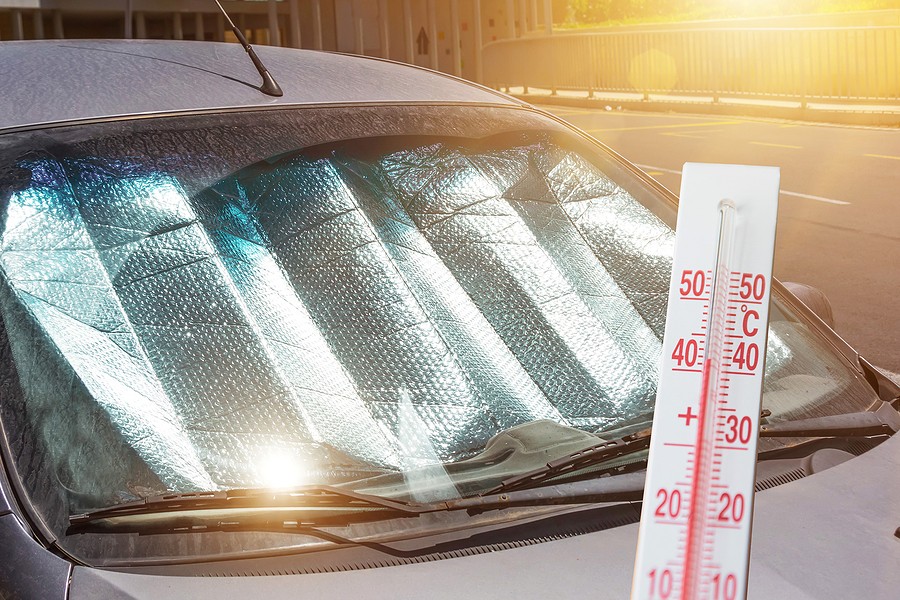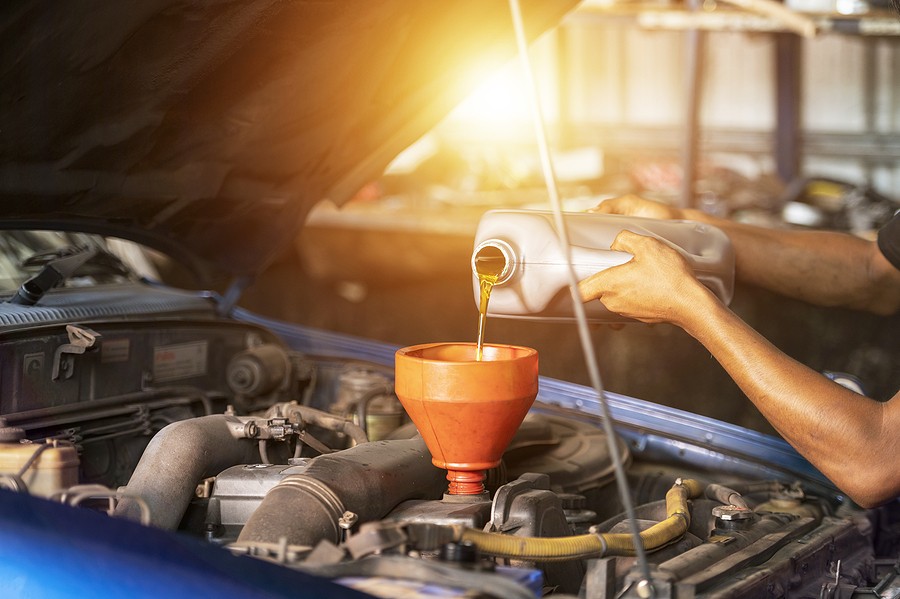The 15 signs your car is failing include the following:
- Weird noises
- Reduction in a fuel economy
- Check engine light illuminating
- Difficulties starting
- Weird smoke out of the exhaust
- Vehicle shaking
- Weird smells
- Fluid leakage
- Vehicle overheating
- Electrical troubles
- Uneven tire wear
- Break damages
- Too much oil consumption
- Clunking behavior when driving
- Transmission slipping
Any car owner should understand what needs to be done to maintain the vehicle and have it served him if possible. One of the things that you need to do is to monitor for any signs indicating that your vehicle is failing before it even does.
The biggest question becomes, what are the common signs your car is failing? Are these signs something easy to detect or not? What options do you have to resolve these problems before they get complicated and too late?
This article will answer these questions and more to help you resolve your car problems issues before it breaks down suddenly. Remember that some signs might indicate significant damages, which could mean your vehicle is beyond repair.
15 signs your car is failing
Automotive experts understand the importance of learning about the signs that your car is failing and how important it is to prevent sudden car failure from too many drivers. The following symptoms are the most common that could indicate your vehicle's failing. If you see or experience any of these symptoms, you must immediately consult your mechanic before it's too late.
- Weird noises
The more you drive your car, the more you will know when your vehicle is starting to make weird noises. Typically, and with advanced technology, manufacturers are now building vehicles to run as smoothly as possible so they don't make weird and loud noises.
However, at some point in time, and as your vehicle reaches the end of its lifetime, you'll start hearing some weird noises. These noises could be related to problems in the engine or the transmission, and sometimes they could be related to the wheels.
Some of the common noises that could indicate your vehicle is failing is the grinding or squealing noises. In addition, you may hear some engine knocking, and sometimes you'll notice that the belts and bearings are also making some rattling noises.
If you have experienced any of these noises, you should not ignore them because the more you ignore them, the louder they get, and once you get to that point, your vehicle might get extremely damaged, and it might not be worth fixing this vehicle.
- Reduction in a fuel economy
The other thing to watch for is vehicle fuel efficiency. When your vehicle consumes more fuel than it should, you might be dealing with certain internal problems. For example, these problems could be minor, like a clogged air filter or potentially a clogged fuel filter.
When you deal with a reduction in fuel economy, you need to check on these items and replace them as soon as possible. The more you ignore simple components like the filters, the more complicated the problem gets and the more expensive repair costs.
Therefore, you must always appreciate the importance of these minor components in your vehicle. You should not ignore any change in your vehicle’s behavior when consuming fuel. For example, you can monitor the frequency of your visit to the gas station and see whether this indicates an overconsumption of fuel.

- Check engine light illuminating
The check engine is one of the most critical warning lights that you have to keep an eye on. It should indicate an internal problem not necessarily related to the engine. However, it could be related to something in the vehicle that you should pay immediate attention to.
When you check into the eliminates, you must immediately consult your mechanic to have him perform the needed inspection to determine the root culprit causing the problem.
Many problems go to trigger the check engine light to illuminate. For example, if you have a problem with the oxygen sensor or your car has a cracked engine block, you'll always see the light illuminating the check engine.
Ignoring a check engine light is never a good idea because all that’s going to happen is more complications and further damage to the surrounding components causing your engine to feel complete.
- Difficulties starting
You'll find it hard to start when your engine or vehicle needs fixing. Sometimes the problem could be related to a minor issue related to the battery that needs to be changed. Sometimes, the issue could be more complicated and beyond the battery.
No matter what's causing the difficulty starting your car, you should take up the situation and monitor carefully. You need to communicate this information with the mechanic and have him perform the necessary inspections to confirm the real culprit behind the problem.
- Weird smoke out of the exhaust
With the evolution in manufacturers and technologies creating vehicles, ours do not create obvious smoke color from the exhaust system. This smoke should only have color if you're studying your vehicle on a cold morning.
However, if you started noticing some colors in your vehicle smoke, it could indicate different problems. Depending on the type of color, the problem could be different. Let's take a closer look at some of the common colors that could indicate internal problems in your vehicle:
White exhaust smoke
If very strong white exhaust smoke comes out of the tailpipe, it might indicate that your coolant is leaking inside the vehicle and getting burnt in the engine. This is a serious problem; if you don’t take care of it immediately, it could evolve and cause significant damage to other components. It might even get your vehicle to fail.
Blue exhaust smoke
If the exhaust smoke from the tailpipe is blue, the problem could be related to oil getting burnt inside the engine. There could be an internal leak that's causing the oil to get inside the cylinders, which is something that shouldn't happen. There might also be a crack in this cylinder or damage in their head gasket, causing the issue.
Black exhaust smoke
Finally, if the exhaust smoke is black, it might indicate a problem with the fuel system or, potentially, the air filter is clogged. You should pay attention to both problems because they might lead to further complications that will cost you the entire vehicle.
- Vehicle shaking
There are potential signs your vehicle is feeling when the vehicle starts shaking, especially if you increase speeds. Vehicle vibration and shakes the very good thing might indicate an issue with the steering system or something else related to the wheels or potentially to the tires.
The faster you take care of the problem, the more complications you prevent, and the more your vehicle can serve you without needing to install major components that could cost you thousands of dollars on repair.

- Weird smells
Automotive experts indicate that any weird smell from the vehicle might indicate a major internal problem. Although some smells could indicate minor problems, you should always assume the worst and get in touch with your mechanic as soon as possible.
For example, here are some of the common smells that could indicate your vehicle is failing:
A burning rubber smell
The first and most common sign you might notice is that something is burning, like a rubber burn inside the vehicle. In that case, you could be either dealing with a malfunction in the belts or potentially damages in the braking system.
A burning oil smell
Another typical smell you will experience if your vehicle feels is a burning oil smell. This serious problem indicates that your oil is leaking inside the cylinders and getting burned during combustion. The problem could be linked to a correct engine cylinder or a damaged head gasket.
A Maple syrup smell
Automotive experts indicate that serious car smells do not necessarily have to be bad. In other words, if you started smelling something like Maple syrup or a sweet smell, it might indicate that your coolant is leaking, which is a serious problem that could damage the entire vehicle if ignored.
- Fluid leakage
In addition to the previously mentioned signs of your cars failing, fluid leaks could be a big one. If your vehicle is leaking fluids, you should not ignore the problem, and you have to talk to your mechanic as soon as possible to have him inspect the car and determine what's leaking exactly.
For example, your vehicle might leak oil, coolant, transmission fluid, etc. All these fluids must be in a certain quantity, and if they drop significantly, they can cause severe damages that could cost you much money if ignored.
- Vehicle overheating
Engine overheating is another big problem that could indicate an internal engine problem requiring immediate repairs. If your vehicle starts overheating continuously, there could be an issue with major components like the water pump or potential issues with the cooling system.
Ignoring overheating is never a good idea because all it leads to is significant damage in the vehicle and might result in engine self-destruction which is one of the worst situations your vehicle could get into because you'll have to install a new engine.

- Electrical troubles
While electrical problems might not necessarily indicate safety issues, they might be assigned that your vehicle is failing. For example, if you notice that the headlights are not behaving as they should, they might indicate an issue related to the battery or bigger components.
Suppose you feel this is a continuous situation. In that case, you need to check with your mechanic and have him thoroughly inspect the electric system and confirm that everything is working just fine, including the dashboard lights, the audio system, and the headlights.
- Uneven tire wear
Another thing to watch for with taking care of your vehicle is the tires. Typically, your vehicle tires are expected to wear out over time. However, the critical thing that could happen is uneven wear in these tires.
If the tires are not wearing evenly, they could indicate a problem with the alignment or potentially the wheels or even something bigger like the suspension system. You must check with your mechanic and have him determine what exactly is causing this problem and what needs to be done to resolve it before you change the tires and have them; we are out faster than they should.
- Brake damages
The braking system is one of your vehicle's most critical systems that you must keep an eye on. Unfortunately, many people only determine that the braking system works well if they deal with significant vehicle failure.
Therefore, you must monitor how your braking system is behaving and if you feel that your vehicle is not responding to the brakes or if the brakes cause weird sounds or make strange smells, you must inspect what exactly is happening and have your mechanic fix the problem as soon as possible.

- Too much oil consumption
Your engine should consume specific amounts of oil over time. You should only see a significant reduction in the oil if there is an issue with the engine itself or other major components. If you feel that your vehicle is consuming too much oil or what's referred to as excessive oil consumption, you must consult your mechanic because this is not a good sign.
Many issues could cause your engine to consume much oil, including damages to the engine itself, issues with the oil pump, and more. Therefore, you can only immediately assume that one single component is causing the issue if you discuss it with your mechanic.
- Clunking behavior when driving
When driving your car, you should notice any strange behaviors or sounds. For example, one common problem that could indicate your vehicle is failing is when your vehicle starts making some clunking noise as you drive.
It can be hard to determine what exactly is going on with this clunking noise, but it's most likely related to the suspension system or, potentially, the wheels. That's why your mechanic should have a better idea about which exactly is causing the problem, and he should have some thoughts about what needs to be done to fix the problem before it gets more complicated.
- Transmission slipping
Finally, another important sign that your car is failing is when you have the transmission slipping. Your transmission should behave well all the time. If you're struggling to switch gears, especially if you're driving a vehicle equipped with a manual transmission, you should check with your mechanic and have him resolve the issue before it gets more severe.

Final thoughts
Taking care of your car is one of the most critical tasks to educate yourself about as a driver. In common situations, people need preparation to deal with sudden car failures.
A good way to prevent dealing with these situations is to educate yourself about the common signs that your car is failing. This article highlighted 15 common signs and gave recommendations about what must be done to resolve the problems before it's too late.
If your car fails and you want to get rid of it, you can always consult Cash Cars Buyer at 773-791-4363.



